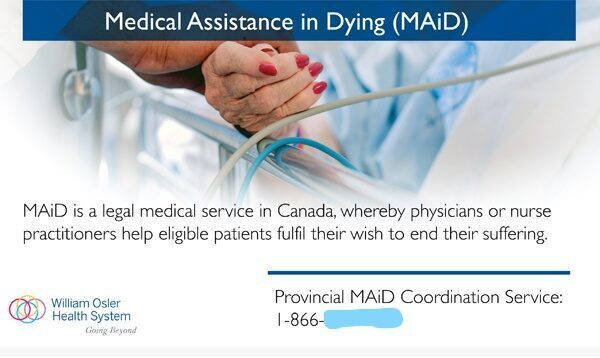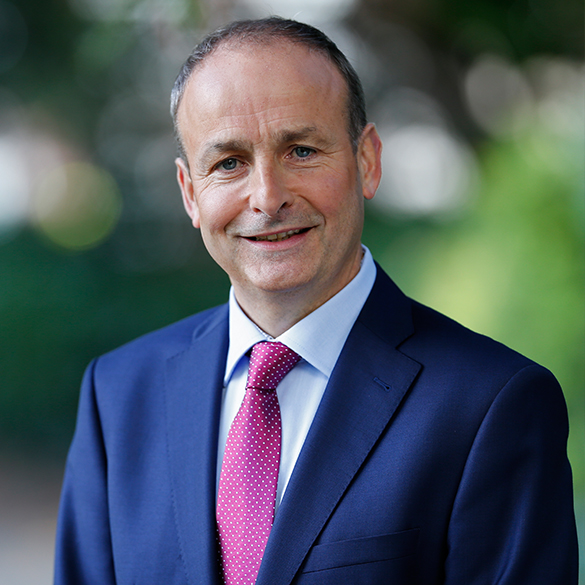
More than two thirds of women who work in the home and have a third level education do not want to return to a paid job, according to a survey issued Wednesday.
SOLAS, an agency of the Dept of Education and Skills, conducted research on 218,000 women, aged between 20 – 64, who are not participating in the labour force.
122,500 have a Leaving Cert or less; 31,700 have further educational training, and some 57,500 have third level education. It found the majority of the women – regardless of their education level – said they did not wish to return to the labour force.
Of the 57,500 women with a third level education, some 6,600 or 11pc are available for work but are not seeking it, 19pc or 11,200 want a job but can’t work as they are caring for others or for personal reasons, and 68pc or 38,900 women do not want a job, the survey says.
Some 47pc of women with third-level qualifications have children aged five or younger, compared to 25pc for women with upper secondary education or less.

Research suggests that divorce rates may decrease as a result of effectively implemented premarital education promotion policies.
That’s according to the Institute for Family Studies who examined 10 US States who have such policies. It found that States with better-implemented policies are associated with a 0.5% reduction in the divorce rate. One State, Texas, saw a 1.5% reduction in the divorce rate that can be attributed to the effects of the policy change. The divorce-reduction effect, however, is measured for all marriages, including those that began before the premarital education policies were implemented. So, the divorce-reduction effect of the policy is likely underestimated.

At least six people have been shot dead at a church in northern Burkina Faso.
The violence took place on Sunday in the village of Silgadji, not far from the volatile border with Mali. Urbain Kabore, the communications director for the Sahel region of Burkina Faso said the attackers arrived on motorbikes at the end of a Sunday service and killed the pastor, two of his sons and three other worshippers.
There was no immediate claim of responsibility although violent Islamic extremism has been increasingly destabilising the country. A number of jihadist groups are known to operate the area.
It is the first attack on a church since jihadist violence erupted in the West African country in 2016.
Meanwhile, authorities said that in a separate incident attributed to jihadists in the east of Burkina Faso, five teachers were shot dead on Friday. The Islamic extremists have also targeted foreigners, abducting and killing a Canadian geologist earlier this year.
It is still not known whether a Catholic priest kidnapped a month ago is still alive.

A law in the Netherlands that allows people to register their stillborn children as a legal persons in the Personal Records Database, is now also being used to register unborn babies who were killed by abortion.
According to the law that passed in February 2019, any parent can report a child who died prior to birth regardless of the time frame, and the deceased child is then added to the Dutch “persons list” next to the information of the parent(s).
A young woman who deeply regretted her abortion then came forward to register her aborted child, who was terminated fourteen weeks into the pregnancy, under the auspices of the new law. The officials at Amsterdam’s City Hall duly processed her request and registered the child in their records.
Kees van Helden of the Dutch pro-life organization Cry for Life said this addition to the law “is a step forward in the process of dealing with grief after abortion”. He added: “The fact that a woman can now register her aborted child as a person, with a name and a date of birth, should force our government, and perhaps other governments as well, to re-examine the abortion laws. Because according to what is now their own logic, our societies are killing human beings.”

More than two-thirds of people agreed with the statement that “society is too politically correct’, according the latest ‘Sign of the Times’ survey by Behaviour & Attitudes. Prof Ian Robertson, emeritus professor of psychology at Trinity College, suggested that the frustration with political correctness expressed in the survey might be a reflection of current debates around language and identity politics.
Other findings included that sixty one per cent of people agreed “everything is changing too quickly”.
The poll also shows that only fifty-four per cent of the 1,000 adults surveyed agreed that they felt pride in the result of the same-sex marriage referendum, even though 62 per cent of voters actually voted in favour of same-sex marriage in 2015.
Ian McShane, executive chairman of B&A, said the discrepancy might be explained by those who voted in favour of it based on human stories. “In the lead-up to the referendum, I happened to do a lot of research among older rural voters who would say ‘I’m not going to vote’ or ‘my granddaughter explained it all to me and I’m voting yes’, or ‘So and so from ‘Ballymagash’ down the road is gay, so I’ll probably vote yes’. I can see those people saying ‘No, I didn’t take pride in the result, but I voted yes’.”
In the referendum, 38 pc of voters voted No, while almost 40 per cent of the electorate did not vote at all.

A survey of more than 5,000 pupils, teachers and parents leaked to The Irish Times says that many students find that sex education is too often “fear-based” and focuses on matters like unwanted pregnancy and STIs. It also finds that students want a ‘safe space’ where they can discuss, ask questions and talk about all aspects of relationships and sexuality.
According to a report in the Irish Times, there were mixed views between students, teachers and principals on whether a school ethos is leading to children not being taught key topics in religious schools. While some said ethos was inhibiting the teaching of certain topics or presenting them narrowly, others said it was not an issue.

The Canadian government has just released the fourth interim report on euthanasia deaths since the practice was legalised in 1916 and it reveals a steady rise in numbers of people undergoing it.
For Canada as a whole (excluding Quebec, Northwest Territories, Yukon and Nunavut) the monthly number of cases of euthanasia increased by 60% from 163 per month in 2017, to an average of 261 per month in the period Jan-Oct 2018.
Euthanasia deaths as a percentage of all deaths varies by province with British Columbia (2.37% of all deaths) nearly three times more than Saskatchewan (0.84% of all deaths).
The canadian law MAID – so-called ‘medical assistance in dying’ – includes both euthanasia and assisted suicide. As of October 2018 there have only been six cases of assisted suicide under the Canadian law compared to 6743 cases of euthanasia.

The Archbishop of Armagh, Eamon Martin has said that the “witness and martyrdom of so many persecuted Christians around the world…reminds us of the importance of advocating for freedom of conscience and religion.” He was speaking at a Mass on Sunday in St Patrick’s Cathedral, Armagh, in which he remembered the bombings in Sri Lanka last week in which more than 250 people were killed, mostly while attending Mass.
The victims were also remembered in the Pro-Cathedral Dublin yesterday at a Mass celebrated by Archbishop Diarmuid Martin. The congregation included President Michael D Higgins, the Taoiseach’s Aide-de-Camp, Commandant Caroline Burke, and members of the Irish Sri Lankan community.
Archbishop Martin told the congregation of his shock at “the terrible violence that hit the Sri Lankan nation”.
“Naturally, as Catholic Christians we remember in a special way our own Christian brothers and sisters who were among the prime targets and victims of the violence. May God grant them eternal rest and peace,” he said.
Dr Lal Fernando, who is an assistant professor in the Irish School of Ecumenics, spoke of how his sister, who is a primary school teacher in Negombo, saw seven of her pupils killed in the attack, along with 18 of their family members.
When he spoke with his sister, he said she was “weeping inconsolably as she with her staff members, desperately attempted to identify the lifeless and disfigured bodies of her pupils”.

Fianna Fáil leader Micheál Martin has called for the suspension of the Petition of Concern mechanism in Northern Ireland as a way to break the current political deadlock on issues such as same-sex marriage or a standalone Irish language Act. The petition allows a majority of either Nationalist or the Unionist representatives to veto proposals on issues of serious importance, even if they are only a minority of the whole Assembly.
If that were not accepted, Mr Martin proposed that there be a referendum on same sex marriage as an alternative way to settle that issue.
Although a scandal regarding a renewable heat initiative and the extent to which blame fell on Arlene Foster caused the Government to fall, in talks early last year to resolve the political impasse, issues such as same sex marriage and Irish language prevented the parties reaching an agreement.
It is not clear however that resolving same-sex marriage would enable the devolved Government to be restored, or that it is even the most important issue dividing the parties.

Women’s preference for jobs that tend to pay less is the best explanation for the gender wage gap, according to new research conducted by the Economic and Social Research Institute (ESRI). Gender differences in job preferences contributed more to the wage gap than what they studied, the number of hours worked, or previous employment.
The researchers found that most of the difference in men’s and women’s earnings could still not be explained, however, suggesting that bias might still be a factor. But, they concluded that, across the EU as a whole, gender differences in job preferences accounted for 10% of the gap.
“We find that women place greater value than men on jobs that are close to home and offer good security, and these job preferences are associated with lower wages,” said the research paper, which has been published in the Oxford Bulletin of Economics and Statistics.
The study used information from 48,000 adult employees across all 28 European Union countries. It focused on full-time employees only and found a gender wage gap of 13% across the EU, meaning full-time male employees earned an average of 13% more than their female counterparts. This varied from country to country, with Ireland’s gender wage gap standing at 18%. Of this, 6.6% could be explained while 11.4% could not be accounted for.